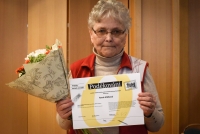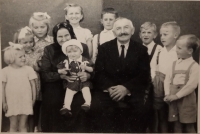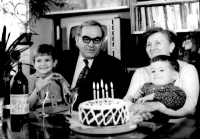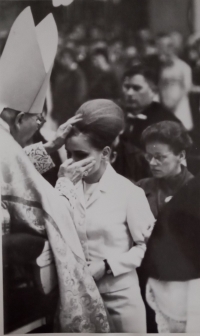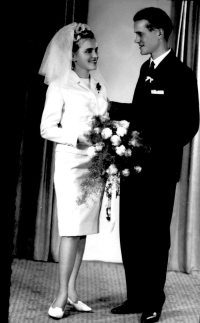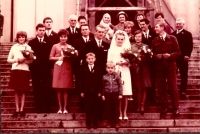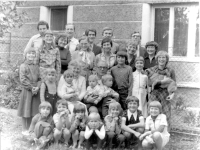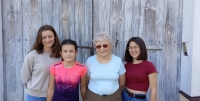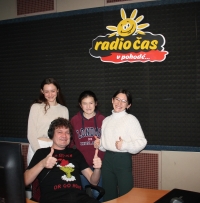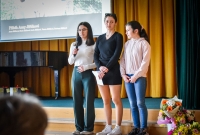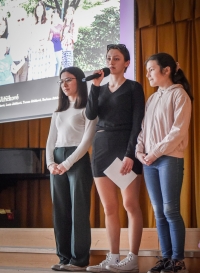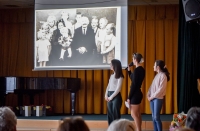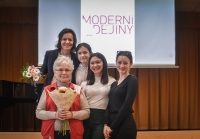My father brought back his teeth from jail in a jar
Stáhnout obrázek
Anna Jiříčková (born Korpasová) was born on June 4, 1946 in Ostrava to Oldřich Korpas, who was a technical officer, and his wife Ludmila. During World War II, Oldřich Korpas had links to the partisan group Lenka that operated in the Vysočina Region. He was also significantly involved in the Czechoslovak People‘s Party and worked as an official for the Catholic sports organization Orel. In 1948, he refused to join the Communist Party, as a result of which he lost both his job and his apartment. In 1954, the State Security arrested him and Oldřich was sentenced to ten years in prison following a public trial. In 1960, he was released as part of an amnesty. A year later, he was sentenced again, this time to seven years in prison, for allegedly violating “security surveillance” measures (a method used by the State Security to monitor dissidents and limit their freedoms). At the age of fifteen, Anna Jiříčková was interrogated by the State Security. The family found itself on the verge of poverty during her father‘s imprisonment. Anna and her siblings were the target of mockery at school and were verbally abused by most who knew them. At the age of fifteen, after being rejected from studying at medical school, Anna started working as a health care assistant in a pharmacy. At the age of twenty-one, she remotely graduated from high school and then mostly worked in administrative positions. She retired receiving disability allowance in 1985. She and her husband Pavel raised three children, Petr, Karel and Pavel.
